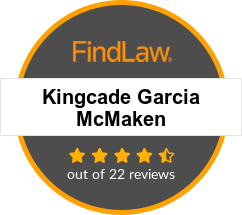The temptations – and dangers – of payday loans
While tempting for many, payday loans can result in enormous fees, very high interest rates and a vicious cycle of debt.
“Payday lending” locations are everywhere, particularly in less-affluent communities. These lenders prey upon low-income people caught with few options when an unexpected vehicle or major appliance repair, medical bill or other expense arises.
The people tempted by these types of short-term loans may have a poor credit rating from years of late or missed bill payments. They might have a lower-paying job and be living paycheck to paycheck. They could already be over-extended credit-wise, struggling to make even the minimum payments on credit cards, preexisting medical bills or other debts.
Traditional lenders would typically view such people as too high of a risk for a loan, so that avenue of funds would be off limits to them. They may feel they have no other choice but to take advantage of a “payday advance” or “payday loan” to make ends meet.
How these loans work
Essentially, payday loans are an advance on the applicant’s next paycheck. The lender gives them the money now, and anticipates being repaid once the person’s next paycheck is deposited. The applicant must provide bank account information (or a post-dated check, in jurisdictions where those are still legal) as well as proof of employment, but there is typically no collateral required, and no credit check is performed prior to the loan arrangement being finalized.
These lenders certainly don’t make loans out of the goodness of their hearts, though. In addition to origination fees and other up-front expenses that can be tacked on to the loan amount, there are also hefty interest rates. Interest on payday loans can range from an average of 500 to 800 percent APR if averaged out to a full year instead of the expected life of the underlying loan (usually between a week and a month, depending on the rate at which the applicant is paid).
The most common complication
Oftentimes, because of other financial obligations, the recipient of the payday loan is unable to pay back the full amount of the loan (including fees, taxes and interest) at the time it is due. If that’s the case, he or she can then choose to roll the loan over and extend the payment terms. Sounds relatively harmless, right? Unfortunately, that just isn’t true. When you extend the payment term, you also tack on additional fees and interest. This can easily balloon an initial investment of as little as $100 into hundreds or even thousands of dollars by the time the loan is paid in full, and can turn what should have lasted a few weeks into years of endless payments, very little of which actually goes to pay down the principal of the loan.
A better choice for many
Payday loans should always be approached with extreme caution, even for those who are in seemingly desperate financial straits. There are other options that should be seriously considered first, including seeking an advance from your employer, asking family or friends for a loan, or even getting a cash advance on your credit card. These options aren’t necessarily without risk, but at least they don’t come with the often unseen “strings” like those attached to payday loans.
If you find yourself struggling with debt, behind on several bills or unable to make anything more than the minimum payment on a number of different accounts, you may be a good candidate for federal bankruptcy protection. To learn more about how bankruptcy can help you get out from underneath unmanageable debt for good, speak with a skilled bankruptcy attorney like those at the Miami law office of Kingcade Garcia McMaken
Keywords: bankruptcy, medical bill, credit card debt, payday loan, payday lending, Chapter 7, Chapter 13, debt management
















